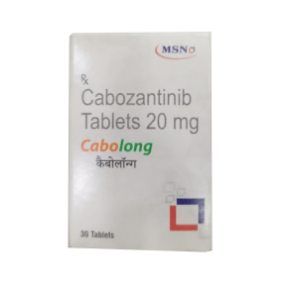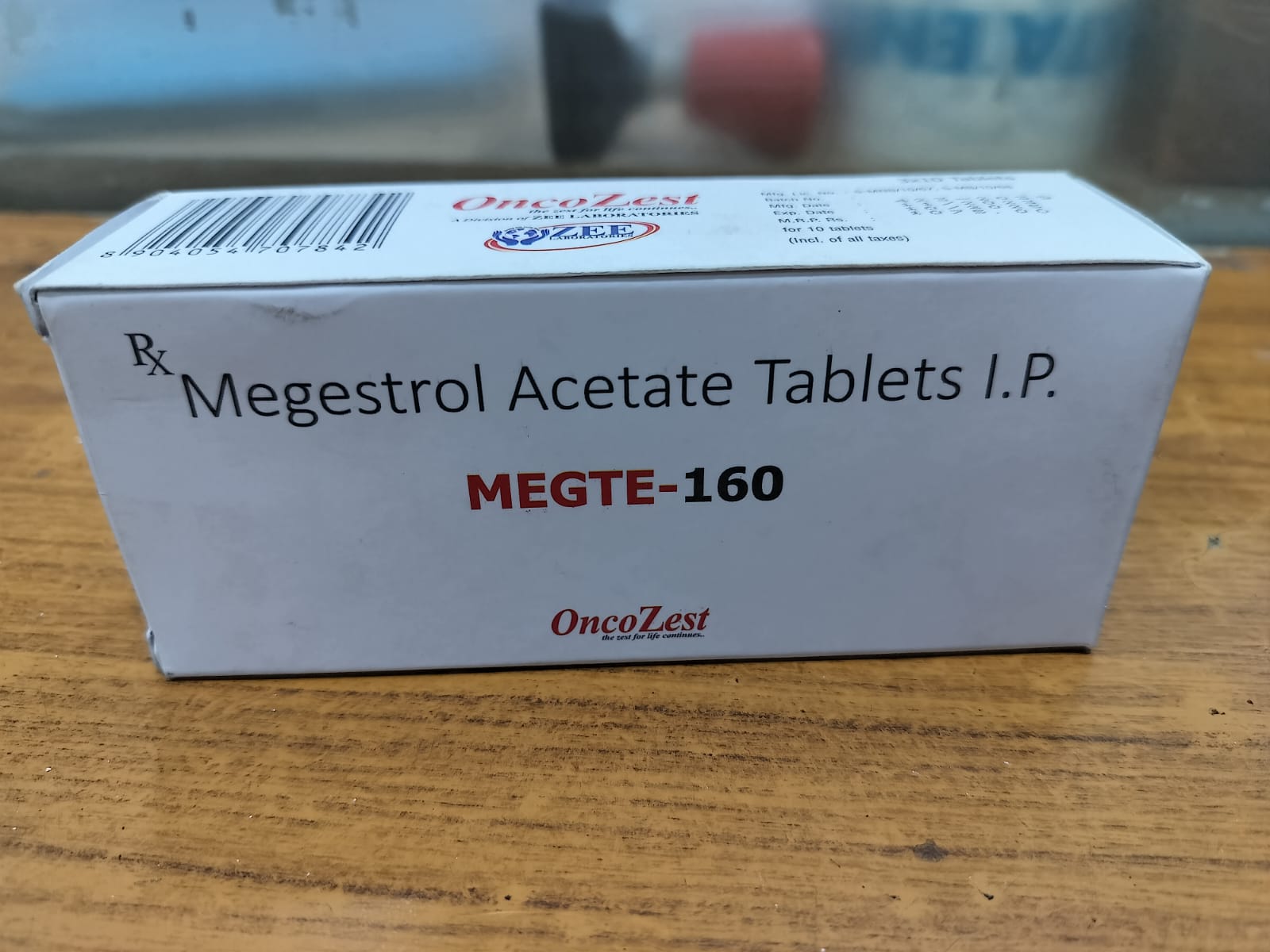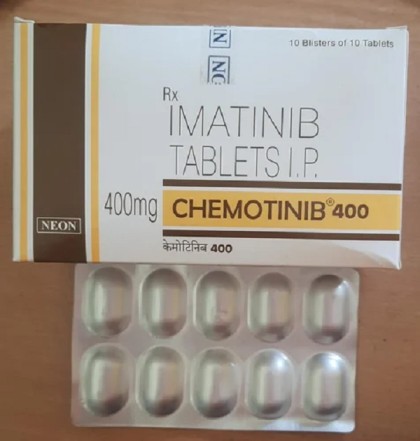Product Introduction:
Cabolong, containing the active ingredient Cabozantinib, is an oral anticancer agent that targets several receptor tyrosine kinases (RTKs) involved in cancer progression. It is indicated for patients with advanced or metastatic cancer, especially when other treatments have failed. Cabolong offers a once-daily oral dosing regimen, improving compliance and patient convenience.
Uses:
Cabolong (Cabozantinib) is used for the treatment of:
-
Advanced Renal Cell Carcinoma (RCC)
-
Hepatocellular Carcinoma (HCC) in patients previously treated with sorafenib
-
Medullary Thyroid Cancer (MTC)
-
Differentiated thyroid cancer (DTC) unresponsive to radioactive iodine (off-label)
-
Combination therapy in selected metastatic cancers
-
Bone metastases management due to its anti-angiogenic effects
Storage Instructions:
-
Store at 20°C to 25°C (68°F to 77°F)
-
Excursions allowed to 15°C–30°C
-
Keep in original container, tightly closed
-
Protect from moisture and light
How It Works (Mechanism of Action):
Cabozantinib is a multikinase inhibitor that blocks several tyrosine kinases including VEGFR, MET, AXL, RET, and KIT. By inhibiting these pathways, it reduces tumor angiogenesis, cell proliferation, invasion, and metastatic spread. It is especially effective in cancers where MET or VEGF signaling is overactive.
Side Effects:
Common side effects:
-
Fatigue
-
Diarrhea
-
Decreased appetite
-
Nausea and vomiting
-
Weight loss
-
Hand-foot syndrome (palmar-plantar erythrodysesthesia)
-
Hypertension
Serious side effects:
-
Gastrointestinal perforation or fistula
-
Hemorrhage
-
Thromboembolism
-
Hepatotoxicity
-
Osteonecrosis of the jaw
-
QT prolongation
Dosage (Typical Recommended Dose):
-
For RCC and HCC: 60 mg orally once daily (usually achieved by combining 20mg and 40mg strengths)
-
For MTC: 140 mg/day (as a separate capsule formulation – not interchangeable with tablets)
-
Dose may be adjusted based on toxicity or renal/hepatic function
-
Do not take with high-fat meals (reduces absorption rate)
Method of Administration:
-
Take orally, at least 1 hour before or 2 hours after eating
-
Swallow tablets whole, do not crush or chew
-
Take at the same time every day
Precautions:
-
Monitor blood pressure, liver function, and electrolytes regularly
-
Use caution in patients with history of bleeding or GI perforation
-
Not recommended in pregnant or breastfeeding women
-
Use effective contraception during and at least 4 months after treatment
-
Monitor for signs of wound healing complications
Drug Interactions:
-
Avoid strong CYP3A4 inducers/inhibitors (e.g., rifampin, ketoconazole)
-
Increases plasma levels of other drugs metabolized by CYP3A4
-
Grapefruit juice should be avoided
-
May enhance effects of antihypertensives or anticoagulants
Allergies:
-
Contraindicated in individuals with hypersensitivity to Cabozantinib
-
Monitor for signs of allergic reactions, such as rash, itching, or swelling
Overdose Information:
-
Overdose may lead to severe hypertension, diarrhea, or electrolyte imbalance
-
No specific antidote; provide supportive care and symptomatic treatment
-
Hospitalization and monitoring of vital signs may be required
Missed Dose Instructions:
-
If a dose is missed, do not take it if the next dose is due in less than 12 hours
-
Otherwise, take the missed dose as soon as remembered
-
Do not double the dose to make up for a missed one
Additional Notes:
-
Requires regular monitoring for adverse events and laboratory values
-
Educate patients about the risk of bleeding, jaw problems, and hypertension
-
May cause photosensitivity – advise protection from sunlight
-
Tablets are not interchangeable with Cabozantinib capsules used in thyroid cancer




